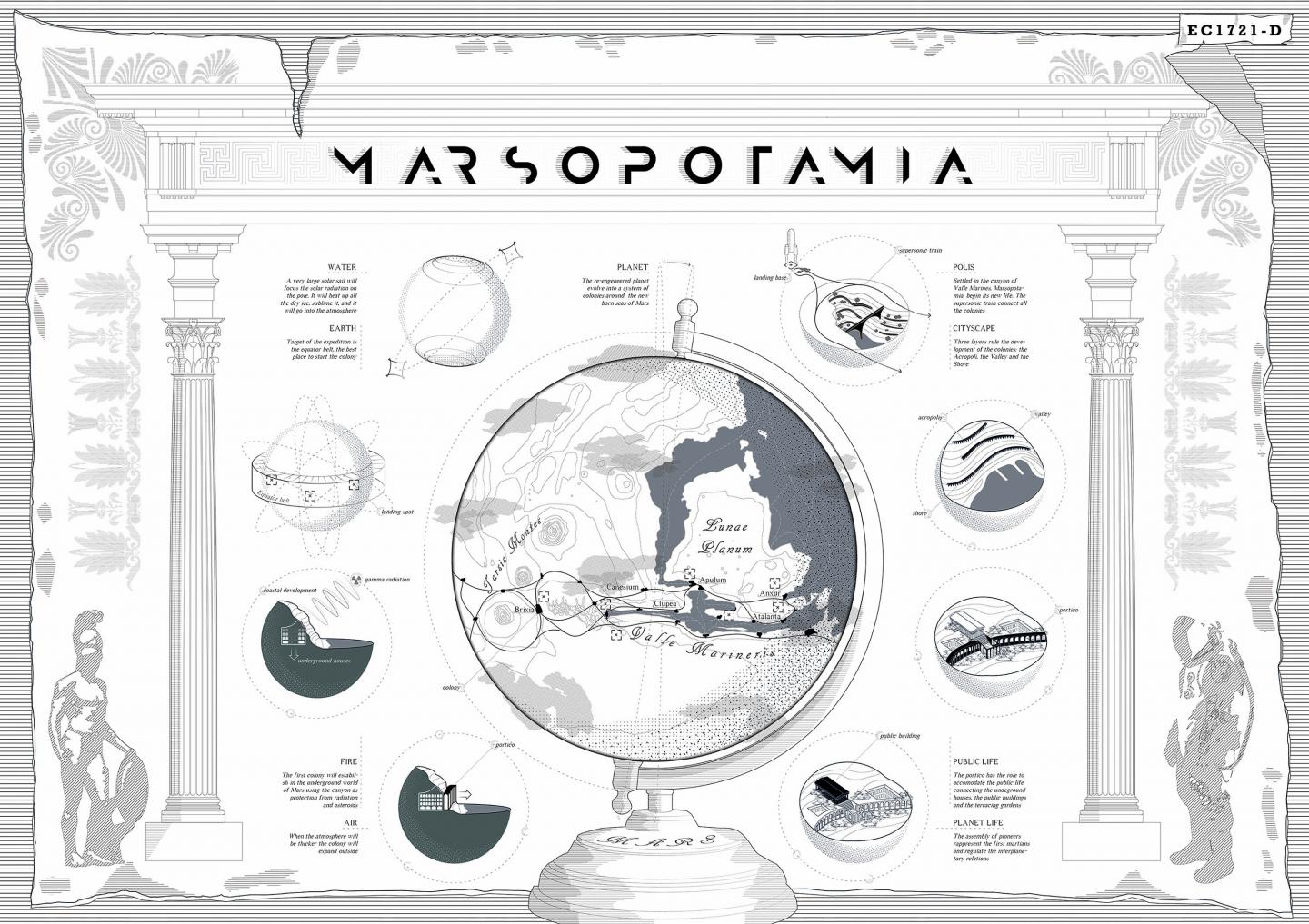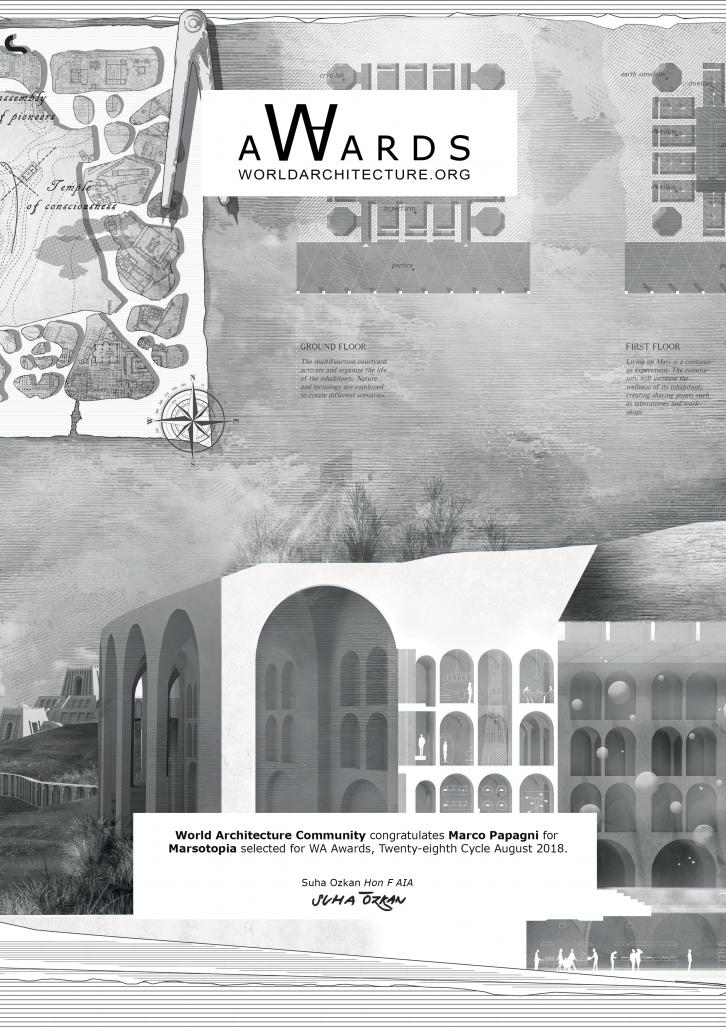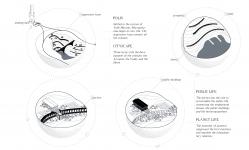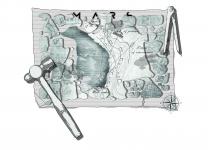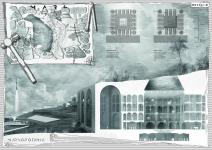Architecture is the means by which time reveals itself, this manifestation occurs when time becomes space through the construction of forms. The first interplanetary civilization, however, knows no time, except the one from which it was conceived, the time of the pioneers.
The projection of a space that has been conceived on the physical space has the aim of transforming the unknown, hostile and impracticable space into measurable and possessed orientable space.
Space and time are the parameters of our world and the architectural form contains both spatial and temporal meanings.
Architecture has, until now, represented the time and place in which it was conceived, but if there is no time and there is no known place then the configuration of space can only represent cultural values of the society that conquers it.
The geometric signs, paradigms of the spatial control bases its roots in the classical concept of building a society, forgotten by contemporary culture, this concept today defines architecture as a means by which to celebrate the tensions that the architecture it is able to generate not its relationship with the society.
The formal appropriation of the classical figures allows a spatial control able to generate an architecture in a state of balance, between the specificity of the place and the autonomy of the form and it is in this "equilibrium" that our architecture manages to establish a sentimental connection with reality, transcending time, reaching its autonomy.
An independence that makes architecture it intimate and monumental, specific and autonomous, manifesto of a specific place but at the same time belongs to the human culture. In a time where technological swings rule the principles of flexibility, classical forms take on an even wider meaning, extended spatiality makes possible the coexistence of dimensional monumentality and spatial flexibility, of spiritual necessity with social evolution.
In a condition of perfect coexistence between sentimentality and technology, the word “utopia” changes its meaning. The reorganization of the society of the pioneers through the classical forms allow us to overcome every preconception.
Eternal, bearers of peace and free capable of representing the pioneers and inspiring future generations.
2018
0000
Andrea Giuseppe Bulloni
Matteo Ciabattini
Marco Papagni
Nicolò Sabbadin
Marsotopia by MARCO PAPAGNI in Italy won the WA Award Cycle 28. Please find below the WA Award poster for this project.
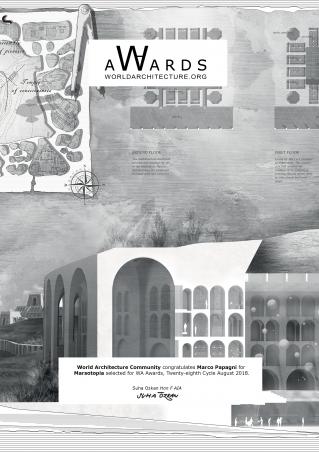
Downloaded 11 times.
Favorited 1 times
